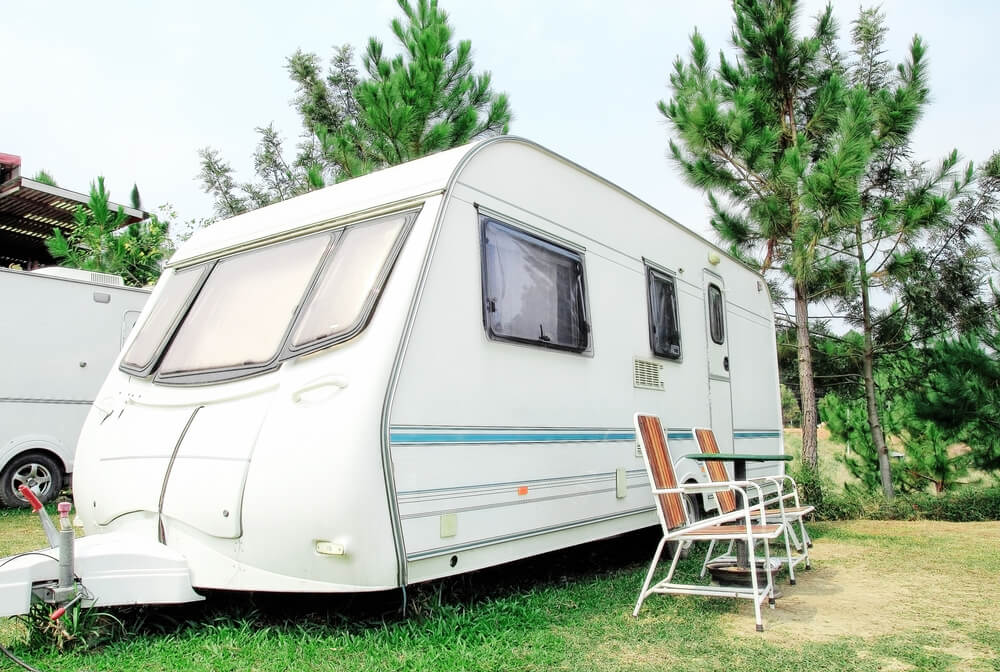
Fires are dangerous anywhere and caravans are no exception.
Prevention
It’s always better to stop a fire happening than to try and deal with its consequences. Many basic fire prevention techniques are common-sense but don’t take them for granted.
Familiarise yourself with them or perhaps just refresh your memory. Either way:
- don’t smoke in caravans;
- avoid heating large quantities of cooking oil, notably chip pans. Cooking oil fires are a common cause of fire in homes but they can be easily avoided by using one of the modern fully enclosed and low-fat content fryers;
- use heaters for heating, not for drying clothes;
- if your caravan is an older model, make sure you replace potentially flammable foam coverings with modern fire-resistant varieties;
- whatever the attractive call of the outside world, don’t leave your caravan unattended while food is cooking on the stove;
- unless you are a qualified electrician, don’t try to enhance the caravan’s electrical systems;
- make sure there are at least six metres between you and other adjacent caravans. This stops fires spreading;
- even if the weather isn’t cooperating, never be tempted to bring the barbecue into the caravan. The same holds true for portable camping gas stoves;
- pay special attention to young children and sources of flame. In the modern world, many might never have seen a lighter or a box of matches before they go on a caravan holiday, and you won’t want them experimenting inside while you are outside.
In addition, always inspect your electrical appliances before use, especially if they’ve been in storage over winter. Cables can become frayed or perish with age and temperature changes. Faulty wiring or overloaded sockets are a common cause of caravan fires, so avoid daisy-chaining multiple appliances into one outlet.
Also check your gas lines and appliances regularly, ideally before every trip. A simple leak detection spray or soapy water can help you identify any leaks around fittings and regulators. If you detect a leak or smell gas, turn off the supply immediately and get it checked by a qualified Gas Safe registered engineer.
Precautions
There are some steps you should take just in case:
- fit optical smoke detectors. They should detect a fire in its very earliest stages and give you a chance to deal with it before it becomes a major threat;
- have a fire extinguisher or extinguishers fitted somewhere away from the stove. There are different types to be used in different situations, so you should select those that are appropriate based on professional advice;
- make sure you also fit a carbon monoxide (CO) detector. CO can be lethal. Make absolutely sure also that all ventilation in the caravan is unobstructed and working well;
- no fire extinguisher is particularly ideal for cooking fat fires. So, you should also have an approved fire blanket
- familiarise yourself thoroughly with how extinguishers work. In the event of a fire, you won’t have time to stand around reading and trying to learn all this;
What to do if the worst happens
If you need to react to the fire:
- your absolute top priority should be to get everybody out of the caravan immediately. It doesn’t matter whether it is raining outside or the fire appears minor, get everybody out. Do not start trying to collect valuables or other personal belongings;
- attempt to deal with the fire with your own appliances if it is minor and you believe it is safe to do so. Above all, keep your access to the exit entirely clear. Do not let the fire come between you and that exit;
- if a fire appears severe or you doubt your ability to deal with it, call immediately for professional help through the emergency services;
- be certain you are using the correct type of extinguisher for the type of fire;
- do not try to deal with fires originating from bottled gas supplies or those which are directly adjacent to them. Retreat a long way away and call for Fire Brigade assistance. Where gas supplies are involved, remember to notify your neighbouring caravans so they can evacuate a further distance away too.
Don’t forget to keep fire exits clear at all times. Avoid stacking furniture or equipment in front of doorways or windows that could serve as emergency exits. Remember, caravans are compact spaces and obstacles can quickly create dangerous bottlenecks during a fire.
If safe to do so, turn off gas and electricity supplies before evacuating. However, only do this if you can reach the controls without going through flames or smoke. Your safety and that of your family must come first.
It’s also worth practising an evacuation plan with your family or travel companions, particularly if children are involved. Agree on what each person should do and where you’ll meet outside the caravan in the event of a fire.
Remember – plan in advance
As mentioned above, when a fire has broken out is not the time to start trying to learn for the first time about how to deal with it.
For the protection of yourself, your family and other caravanners around you, make sure you find 30 minutes or so to familiarise yourself with basic fire prevention and fire-fighting techniques using appropriate safety equipment.

